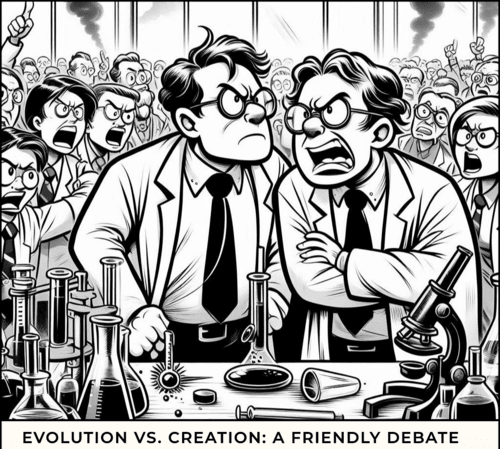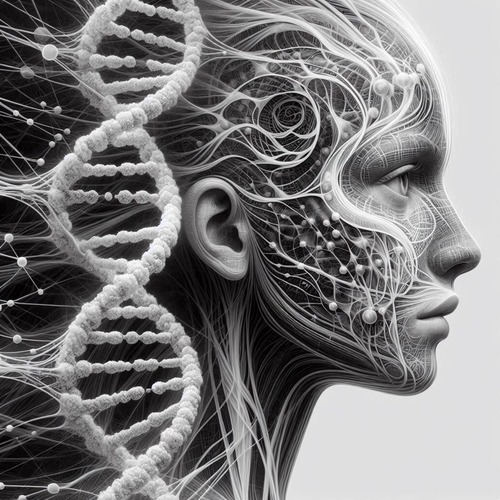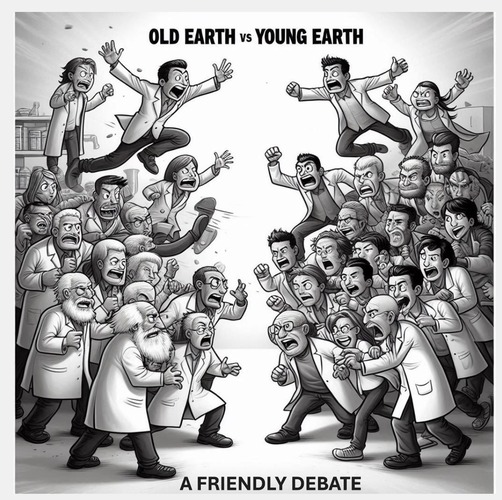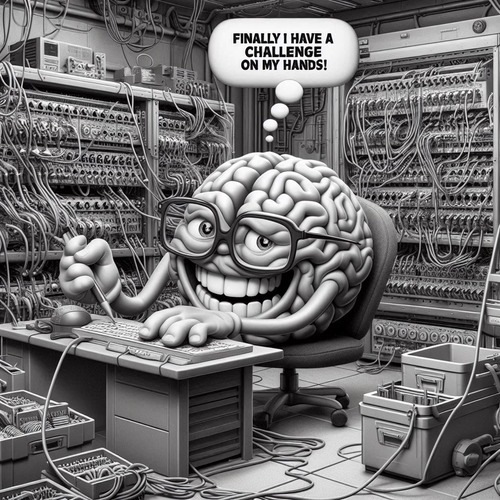Beyond Chance: Exploring the Scientific Case for Creation
In the quest for understanding our universe, science and faith are often viewed as adversaries locked in an eternal struggle. Yet, we often overlook a profound connection—that scientific discoveries actually reveal signs of a Creator. An increasing number of scientists endorse the view that there is a compelling scientific case for creation; they present fascinating evidence that defies the notion of a universe born from mere chance. Despite the widespread portrayal of evolution as the prevailing scientific account, a deeper examination of the data uncovers substantial arguments in favor of creationism. Let’s explore the pivotal scientific case for creation drawn from diverse disciplines.
-
The Fine-Tuning Argument: A Universe Designed for Life: Imagine a universe precariously balanced on a knife’s edge. The fundamental physical laws and constants that shape our cosmos appear finely tuned to foster life. Even minor deviations in these constants could lead to a lifeless universe. For instance, a recent study in Nature(2023) investigated the “cosmological constant,” a force that drives the universe’s expansion. The findings indicate that even a slight alteration in this constant would have resulted in a universe too unstable for life to develop. This remarkable fine-tuning points to a deliberate design over random occurrence. The harmonious balance of fundamental forces like gravity, electromagnetism, and nuclear forces enables the formation of stars, galaxies, and habitable planets such as Earth. Parameters such as the strength of gravitational pull, the electron-to-proton mass ratio, and the universe’s expansion rate are within precise limits that allow for the emergence of complex structures and life. This fine-tuning, often associated with the anthropic principle, suggests a designer’s meticulous planning to create a universe capable of sustaining life.
- The Origin of Life: Deciphering Life’s Inception: The transition from non-life to life remains one of science’s greatest enigmas. Life’s building blocks, amino acids, are complex molecules, and their spontaneous assembly into the correct structures and quantities seems incredibly improbable. Yet, recent findings in hydrothermal vents present fascinating prospects. A study in Science Advances(2022) discovered intricate organic molecules and potential precursors to life within these submarine ecosystems. Although not conclusive evidence of life’s origins, these discoveries point to environments that could support the initial stages of life’s foundational elements. This raises the question—might an external influence be steering this process? The Big Bang theory posits a commencement for our universe, resonating with the biblical notion of creation from nothing. The universe’s ongoing expansion, the cosmic microwave background radiation, and the prevalence of light elements like hydrogen and helium align with this monumental event. The meticulous fine-tuning of physical constants, including the gravitational and cosmological constants, implies a complex design that permits the existence of galaxies, stars, and ultimately, planets that can support life.
- The Cambrian Explosion: A Sudden Surge of Life: The Cambrian period is renowned for a phenomenon known as the “Cambrian Explosion,” where a vast array of diverse life forms appear to have emerged almost instantaneously. This event poses a significant challenge to Darwinian gradualism, which posits a slow, progressive evolution through random mutations. The Cambrian Explosion’s rapid appearance of complex organisms suggests a more abrupt and possibly orchestrated origin. The Burgess Shale’s exceptionally well-preserved fossils in Canada offer a window into this era, displaying a variety of body plans that defy simple evolutionary explanations. This period of swift diversification, along with the lack of transitional forms in many fossil records, questions the slow-paced narrative of evolution, leaning instead towards the biblical depiction of distinct creations.
- The Enigma of the Human Mind: Beyond Material Complexity The human mind, with its capacity for language, abstract thought, and self-awareness, presents a puzzle that transcends materialistic interpretations. Could these traits indicate a higher intelligence at play in human creation? Cutting-edge brain imaging technologies, such as functional magnetic resonance imaging (fMRI), are unravelling the neural underpinnings of consciousness. Although we have yet to grasp the full scope, these studies expose the brain’s remarkable complexity and its capability for advanced cognitive functions, intensifying the enigma of consciousness. The profound nature of human consciousness, moral reasoning, and abstract thought suggests a non-material dimension to our existence, echoing the biblical notion of humanity being created in the image of a transcendent being.
- The Laws of Logic and Mathematics: Indicators of a Deeper Reality The universal laws of mathematics and logic, which underpin the fabric of the universe, appear to be independent of the physical realm, indicating an intrinsic order and rationality. Theoretical physicists’ exploration into “quantum geometry” hints at geometric structures that could form the basis of the fundamental laws of physics. These discoveries suggest that the universal, abstract laws of logic and mathematics may be pointing us towards a reality that extends beyond the physical domain.
- The Complexity of Life: A Testament to Design Biological systems showcase a level of complexity that defies simple evolutionary explanations. From the molecular machines within cells to the vast interconnected ecosystems, life exhibits a complexity that is often described as irreducible. The intricate processes of DNA replication and protein synthesis, along with the sophisticated information storage and processing capabilities of DNA, challenge the notion of a naturalistic origin of genetic information. The precision of DNA coding and the elaborate mechanisms of gene regulation and molecular machinery involved in DNA maintenance suggest intelligent design as the most plausible explanation for the origin of life’s complex information systems.
- Historical Accounts of a Global Flood: Echoes of a Cataclysmic Event: Ancient texts from diverse cultures recount flood narratives that strikingly resemble the biblical story of Noah’s global deluge. Geological evidence, including extensive sedimentary layers, fossil graveyards, and landmarks like the Grand Canyon, lend credence to a catastrophic flood model. The widespread distribution of fossils and sedimentary deposits across continents is consistent with a global flood scenario, offering a window into Earth’s geological past and corroborating scriptural narratives.
- Mutualism in Nature: A Symphony of Interdependence: Mutualism exemplifies nature’s intricate design and purpose, suggesting the hand of a Creator. The symbiotic relationship between clownfish and sea anemones is a prime example, where both species derive mutual benefits essential for their survival. This delicate balance of advantages is also observed in the partnerships between ants and acacia trees, bees and flowers, and oxpeckers and large mammals. These interactions not only highlight the complexity and interdependence within ecosystems but also suggest a Creator’s intentional design in forging such harmonious relationships for the sustainability of life. The precision and purpose manifest in mutualistic associations reflect a deliberate wisdom shaping the natural world, supporting the notion of a purposeful Creator.
Conclusion: A Tapestry of Evidence for Creation The array of scientific evidence for creation forms a persuasive argument for an intelligent force orchestrating the universe’s inception, life’s complexity, and human consciousness. While the discourse persists, an unbiased examination of scientific findings unveils a wealth of support for the biblical creation narrative. Merging faith with logic, these insights prompt contemplation on our role in the cosmos and our connection with the divine. Engaging with this evidence encourages a comprehensive view of science and spirituality, fostering dialogue and inquiry in the quest for understanding.
Related Reads:
- The Cambrian Explosion: How is it a Challenge for the Evolutionist?
- Conspicuous Gaps in the Evolution Narrative
- Defending Creationism: Responding to Evolutionist Challenges
- The Universe’s Origin: Gaping Holes in Naturalist Explanations
- Science Reinforces, not Buries, Faith in God
- Creation or Evolution: Let the Evidence Speak for Itself
Editor's Pick

Sacred Sorrow: Why Jesus Calls Mourning a Blessing
MAKING SENSE OF THE DIVINE PARADOX IN MATTHEW 5:4 When Jesus declared, “Blessed are those who mourn, for they will [...]

‘Sell Everything You Have…’: Are We To Do So Literally?
When Jesus encountered the rich young ruler in Matthew 19:21, His words cut through with startling clarity: “If you want [...]

Why Jesus Said ‘It’s Better I Go Away’…
THE SUPERIOR GIFT OF THE HOLY SPIRIT “Nevertheless, I tell you the truth: it is to your advantage that I [...]

What About Those Who’ve Never Heard the Gospel?…
WILL GOD SHOW THEM MERCY ON JUDGEMENT DAY? Few questions tug at the Christian’s heart like this one. Picture the [...]

Cities of Refuge: Foreshadowing Our Safe Haven in Jesus
Picture this: A man is chopping wood with his neighbour when the axe head flies off the handle, striking and [...]

Testament to Design: The Engineering Marvel of Elephants
Picture an African elephant delicately plucking a single acacia leaf with the tip of its trunk, then moments later using [...]
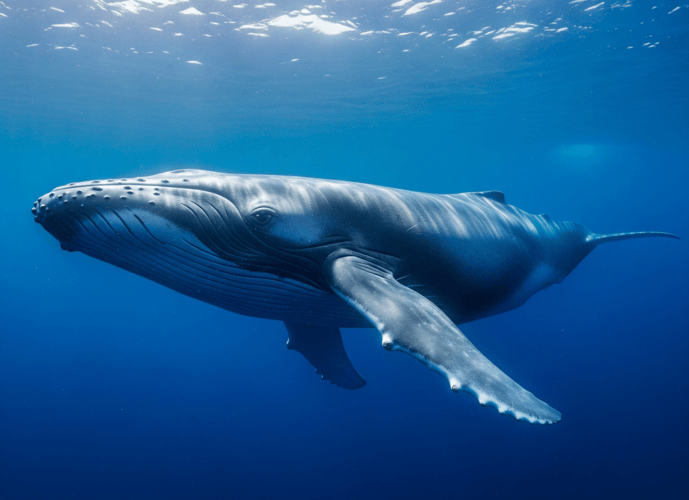
Blue Whales: Mammoth Icons of Intelligent Design
Imagine an animal so massive its heart alone weighs as much as a small car, yet so precisely engineered it [...]

Do Unbelieving Kids Disqualify Church Leaders?
REFORMED PERSPECTIVES ON 1 TIMOTHY 3 AND ELDER QUALIFICATIONS Every pastor knows the heartbreak. A faithful elder who has served [...]

Why Did God Kill Onan? Wasn’t the Punishment Disproportionate?
The story of Onan in Genesis 38 troubles many. Why would God strike down a man for what seems like [...]

Is God Preparing Me for Ministry? How May I Know for Sure?
The question haunts many faithful believers. You’re serving faithfully in your local church, perhaps teaching Sunday school or leading a [...]
SUPPORT US:
Feel the Holy Spirit's gentle nudge to partner with us?
Donate Online:
Account Name: TRUTHS TO DIE FOR FOUNDATION
Account Number: 10243565459
Bank IFSC: IDFB0043391
Bank Name: IDFC FIRST BANK


